
SCARS Institute’s Encyclopedia of Scams™ Published Continuously for 25 Years

SCARS™ Insight: Facebook Community Standards Enforcement Report 2019
From SCARS|ANALYTICS™
How Prevalent Were Fake Account Violations On Facebook?
Facebook says that they estimate that fake accounts represented approximately 5% of our worldwide monthly active users (MAU) on Facebook during Q1 2019 and Q4 2018. BULLSHIT!
[lwptoc]According To Facebook
Community Standards Enforcement Report (from Facebook)
We want to protect and respect both expression and personal safety on Facebook. Our goal is to create a safe and welcoming community for the more than 2 billion people who use Facebook around the world, across cultures and perspectives.
To help us with that goal, our Community Standards define what is and isn’t allowed on Facebook. When we find something that goes against these standards, we remove it. We invest in technology, processes and people to help us act quickly so that violations of our standards affect as few people as possible.
People may intentionally or unintentionally act in ways that go against our standards. We respond differently depending on the severity, and we may take further action against people who repeatedly violate standards. In some cases, we also contact law enforcement to prevent offline harm.
Fake Accounts
Our goal is to remove as many fake accounts on Facebook as we can. We prioritize enforcement against users and accounts that seek to cause harm and find many of these fake accounts are used in spam campaigns and are financially motivated.
We expect this number to vary over time because of the financial incentives for adversaries to create fake accounts. Our detection technology helps us block millions of attempts to create fake accounts every day and detect millions more often within minutes after creation. We don’t include blocked attempts in the metrics we report here.
MISREPRESENTATION
Authenticity is the cornerstone of our community. We believe that people are more accountable for their statements and actions when they use their authentic identities. That’s why we require people to connect on Facebook using the name they go by in everyday life. Our authenticity policies are intended to create a safe environment where people can trust and hold one another accountable.
Facebook Reported Recent Trends
Facebook says it has seen a steep increase in the creation of fake accounts on Facebook in the last six months.
They claim to catch most of these accounts within minutes of registration. However, automated attacks have resulted in more of these accounts make it past their initial detection, which increased prevalence. The number of actioned accounts also increased, since they claim to have removed more accounts that should not be on Facebook.
How Prevalent Were Fake Account Violations On Facebook?
Facebook estimates that fake accounts represented approximately 5% of their worldwide monthly active users (MAU) on Facebook during Q1 2019 and Q4 2018. Of course, this is nonsensical in light of both SCARS’ own estimates of a minimum of 25% and a recent report that showed it was closer to 50% «CLICK HERE TO READ»
According To Facebook Policy Violations Include:
Misrepresent a person’s identity by using a name that does not abide by our name policies, or by providing a false date of birth
Impersonating others by:
- Using their images with the explicit aim to deceive people
- Creating a profile assuming the persona of or speaking for another person or entity
- Creating a Page assuming to be or speak for another person or entity for whom the user is not authorized to do so.
- Posting imagery that is likely to deceive the public as to the content’s origin, if: the entity or an authorized representative objects to the content, and can establish a risk of harm to members of the public.
Of course, we know that these are almost impossible to establish and report to Facebook Moderators.
Also if the “person” or profile engages in “inauthentic behavior,” which includes: creating, managing, or otherwise perpetuating
According To Facebook, Accounts That Are Fake Include:
- Accounts that have fake names
- Accounts that participate in, or claim to engage in, coordinated inauthentic behavior, meaning that multiple accounts are working together to do any of the following:
- Mislead people about the origin of content
- Mislead people about the destination of links off of Facebook services (for example, providing a display URL that does not match the destination URL)
- Mislead people in an attempt to encourage shares, likes, or clicks
- Mislead people to conceal or enable the violation of other policies under the Community Standards
Facebook Analytics: Facebook Accounts “Actioned”
- How Facebook calculates them – the number of Facebook accounts Facebook removed because they were fake and engaged in abusive behavior. This number does not include unsuccessful attempts to create fake accounts that Facebook blocked at the time of registration.
- What the numbers mean – these numbers depend on how many fake accounts were successfully created, but later removed by Facebook. This metric is affected by external factors, such as offline events or adversarial attacks, and by internal factors, such as Facebook’s ability to find potential violations. The majority of these accounts were caught within minutes of registration (they claim) before they became a part of Facebook’s monthly active user (MAU) population.
Facebook Analytics: Facebook’s Proactive Rate
About Facebook’s Proactive Rate
- How Facebook calculates it – they claim this percentage is calculated as the number of fake accounts actioned that Facebook found before users reported them, divided by the total number of fake accounts they claim they actioned. Facebook says they measured accounts on Facebook for this metric.
- What the numbers mean – these numbers depend on how Facebook’s detection technology and reporting tools help them to find potentially violating accounts, review them and take action on them.
Facebook Analytics Summary
Remember that Facebook is playing a delay action to avoid being held responsible and liable for their vastly infiltrated platform. They need to keep the governments of the world away and believing it is not a big problem but ask any scam victim and they know the truth. For a long time, the tobacco industry played the same game until eventually – but it too 40 years – they were held responsible.
Additionally, Facebook has its own Anti-Scam “Advocate” promoting their cause, and even a couple of so-called anti-scam websites promoting Facebook position while pretending to help victims. Always be cautious of fake and amateur anti-scam groups because of this.
As always, we invite Facebook to work with us to solve this problem, but thus far no real response.
Massive Facebook Moderator Failures:
- « Researchers Unearth 74 Facebook Cybercrime Groups With 385,000 Members »
- « Special Report: Facebook Moderators – The Weak Link »
Related Articles About Facebook:
- « Reality Check – Half Of Facebook Are Fakes! A SCARS™ Special Report »
- « People Are Renting Out Their Facebook Accounts »
- « The World Of Facebook Users – a SCARS|ANALYTICS™ Infographic »
- « SCARS™ Quick Guide: Fakes On Facebook »
- « War With Facebook – SCARS™ Commentary »
Source: « https://transparency.facebook.com/community-standards-enforcement#fake-accounts »
PLEASE SHARE OUR ARTICLES WITH YOUR CONTACTS
HELP OTHERS STAY SAFE ONLINE
SCARS™ Team
A SCARS Division
Miami Florida U.S.A.
TAGS: SCARS, Important Article, Information About Scams, Anti-Scam, Facebook, Social Media Platform, Social Media Scams, Facebook Scams, Facebook Fakes, Fake Profiles, Fake Identities, Facebook Action, SCARS|ANALYTICS
CHAT WITH SCARS™ – « CLICK HERE » [icon name=”comment” class=”” unprefixed_class=”2x”]
END
MORE INFORMATION
– – –
Tell us about your experiences with Romance Scammers in our
« Scams Discussion Forum on Facebook »
– – –
FAQ: How Do You Properly Report Scammers?
It is essential that law enforcement knows about scams & scammers, even though there is nothing (in most cases) that they can do.
Always report scams involving money lost or where you received money to:
- Local Police – ask them to take an “informational” police report – say you need it for your insurance
- Your National Police or FBI « www.IC3.gov »
- The SCARS|CDN™ Cybercriminal Data Network – Worldwide Reporting Network « HERE » or on « www.Anyscam.com »
This helps your government understand the problem, and allows law enforcement to add scammers on watch lists worldwide.
– – –
Visit our NEW Main SCARS Facebook page for much more information about scams and online crime: « www.facebook.com/SCARS.News.And.Information »
To learn more about SCARS visit « www.AgainstScams.org »
Please be sure to report all scammers
« HERE » or on « www.Anyscam.com »
Legal Notices:
All original content is Copyright © 1991 – 2020 SCARS All Rights Reserved Worldwide & Webwide. Third-party copyrights acknowledge.
SCARS, RSN, Romance Scams Now, SCARS|WORLDWIDE, SCARS|GLOBAL, SCARS, Society of Citizens Against Relationship Scams, Society of Citizens Against Romance Scams, SCARS|ANYSCAM, Project Anyscam, Anyscam, SCARS|GOFCH, GOFCH, SCARS|CHINA, SCARS|CDN, SCARS|UK, SCARS Cybercriminal Data Network, Cobalt Alert, Scam Victims Support Group, are all trademarks of Society of Citizens Against Relationship Scams Incorporated.
Contact the law firm for the Society of Citizens Against Relationship Scams Incorporated by email at legal@AgainstScams.org
-/ 30 /-
What do you think about this?
Please share your thoughts in a comment below!
Table of Contents
- How Prevalent Were Fake Account Violations On Facebook?
- According To Facebook
- Facebook Reported Recent Trends
- How Prevalent Were Fake Account Violations On Facebook?
- According To Facebook Policy Violations Include:
- Facebook Analytics: Facebook Accounts “Actioned”
- Facebook Analytics: Facebook’s Proactive Rate
- Facebook Analytics Summary
- Massive Facebook Moderator Failures:
- Related Articles About Facebook:
LEAVE A COMMENT?
Recent Comments
On Other Articles
- Arwyn Lautenschlager on Love Bombing And How Romance Scam Victims Are Forced To Feel: “I was love bombed to the point that I would do just about anything for the scammer(s). I was told…” Feb 11, 14:24
- on Dani Daniels (Kira Lee Orsag): Another Scammer’s Favorite: “You provide a valuable service! I wish more people knew about it!” Feb 10, 15:05
- on Danielle Delaunay/Danielle Genevieve – Stolen Identity/Stolen Photos – Impersonation Victim UPDATED 2024: “We highly recommend that you simply turn away form the scam and scammers, and focus on the development of a…” Feb 4, 19:47
- on The Art Of Deception: The Fundamental Principals Of Successful Deceptions – 2024: “I experienced many of the deceptive tactics that romance scammers use. I was told various stories of hardship and why…” Feb 4, 15:27
- on Danielle Delaunay/Danielle Genevieve – Stolen Identity/Stolen Photos – Impersonation Victim UPDATED 2024: “Yes, I’m in that exact situation also. “Danielle” has seriously scammed me for 3 years now. “She” (he) doesn’t know…” Feb 4, 14:58
- on An Essay on Justice and Money Recovery – 2026: “you are so right I accidentally clicked on online justice I signed an agreement for 12k upfront but cd only…” Feb 3, 08:16
- on The SCARS Institute Top 50 Celebrity Impersonation Scams – 2025: “Quora has had visits from scammers pretending to be Keanu Reeves and Paul McCartney in 2025 and 2026.” Jan 27, 17:45
- on Scam Victims Should Limit Their Exposure To Scam News & Scammer Photos: “I used to look at scammers photos all the time; however, I don’t feel the need to do it anymore.…” Jan 26, 23:19
- on After A Scam, No One Can Tell You How You Will React: “This article was very informative, my scams happened 5 years ago; however, l do remember several of those emotions and/or…” Jan 23, 17:17
- on Situational Awareness and How Trauma Makes Scam Victims Less Safe – 2024: “I need to be more observant and I am practicing situational awareness. I’m saving this article to remind me of…” Jan 21, 22:55
ARTICLE META
Important Information for New Scam Victims
- Please visit www.ScamVictimsSupport.org – a SCARS Website for New Scam Victims & Sextortion Victims
- Enroll in FREE SCARS Scam Survivor’s School now at www.SCARSeducation.org
- Please visit www.ScamPsychology.org – to more fully understand the psychological concepts involved in scams and scam victim recovery
If you are looking for local trauma counselors please visit counseling.AgainstScams.org or join SCARS for our counseling/therapy benefit: membership.AgainstScams.org
If you need to speak with someone now, you can dial 988 or find phone numbers for crisis hotlines all around the world here: www.opencounseling.com/suicide-hotlines
A Note About Labeling!
We often use the term ‘scam victim’ in our articles, but this is a convenience to help those searching for information in search engines like Google. It is just a convenience and has no deeper meaning. If you have come through such an experience, YOU are a Survivor! It was not your fault. You are not alone! Axios!
A Question of Trust
At the SCARS Institute, we invite you to do your own research on the topics we speak about and publish, Our team investigates the subject being discussed, especially when it comes to understanding the scam victims-survivors experience. You can do Google searches but in many cases, you will have to wade through scientific papers and studies. However, remember that biases and perspectives matter and influence the outcome. Regardless, we encourage you to explore these topics as thoroughly as you can for your own awareness.
Statement About Victim Blaming
SCARS Institute articles examine different aspects of the scam victim experience, as well as those who may have been secondary victims. This work focuses on understanding victimization through the science of victimology, including common psychological and behavioral responses. The purpose is to help victims and survivors understand why these crimes occurred, reduce shame and self-blame, strengthen recovery programs and victim opportunities, and lower the risk of future victimization.
At times, these discussions may sound uncomfortable, overwhelming, or may be mistaken for blame. They are not. Scam victims are never blamed. Our goal is to explain the mechanisms of deception and the human responses that scammers exploit, and the processes that occur after the scam ends, so victims can better understand what happened to them and why it felt convincing at the time, and what the path looks like going forward.
Articles that address the psychology, neurology, physiology, and other characteristics of scams and the victim experience recognize that all people share cognitive and emotional traits that can be manipulated under the right conditions. These characteristics are not flaws. They are normal human functions that criminals deliberately exploit. Victims typically have little awareness of these mechanisms while a scam is unfolding and a very limited ability to control them. Awareness often comes only after the harm has occurred.
By explaining these processes, these articles help victims make sense of their experiences, understand common post-scam reactions, and identify ways to protect themselves moving forward. This knowledge supports recovery by replacing confusion and self-blame with clarity, context, and self-compassion.
Additional educational material on these topics is available at ScamPsychology.org – ScamsNOW.com and other SCARS Institute websites.
Psychology Disclaimer:
All articles about psychology and the human brain on this website are for information & education only
The information provided in this article is intended for educational and self-help purposes only and should not be construed as a substitute for professional therapy or counseling.
While any self-help techniques outlined herein may be beneficial for scam victims seeking to recover from their experience and move towards recovery, it is important to consult with a qualified mental health professional before initiating any course of action. Each individual’s experience and needs are unique, and what works for one person may not be suitable for another.
Additionally, any approach may not be appropriate for individuals with certain pre-existing mental health conditions or trauma histories. It is advisable to seek guidance from a licensed therapist or counselor who can provide personalized support, guidance, and treatment tailored to your specific needs.
If you are experiencing significant distress or emotional difficulties related to a scam or other traumatic event, please consult your doctor or mental health provider for appropriate care and support.
Also read our SCARS Institute Statement about Professional Care for Scam Victims – click here to go to our ScamsNOW.com website.



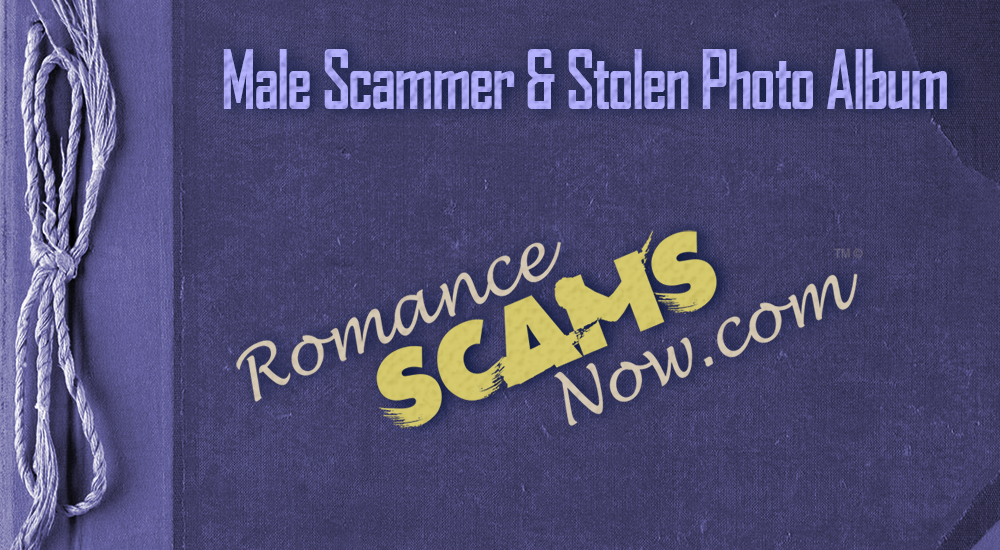
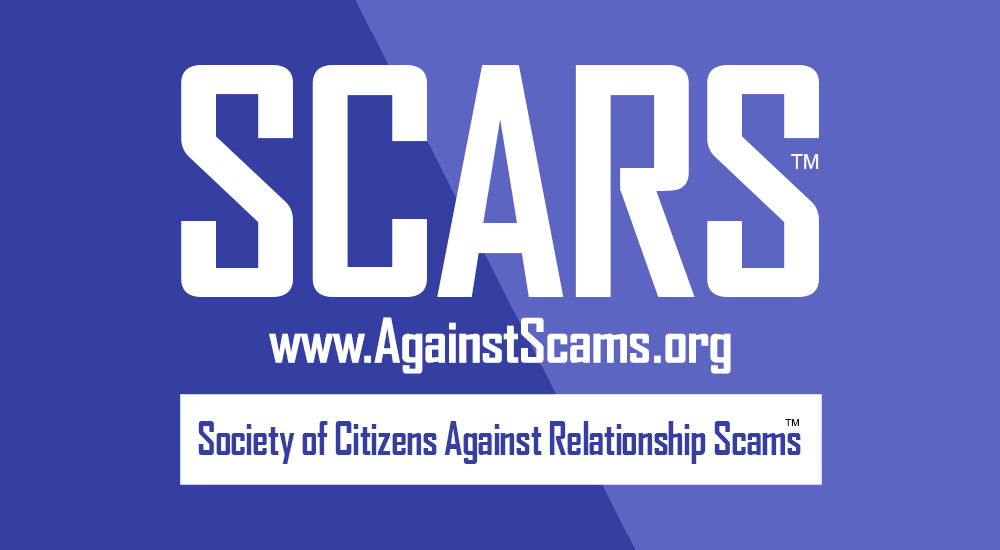







![To Be A Scammer? An Overview Of Scammers Fraudsters & Online Con Artists - 2024 [UPDATED] what is a scammer what-is-a-scammer](https://romancescamsnow.com/wp-content/uploads/2021/10/what-is-a-scammer.png)
![New Research Study on Stolen Valor - Military Scams - STUDY NOW COMPLETED [UPDATED] Military Impersonation Research Study New Research Study on Stolen Valor - Military Scams](https://romancescamsnow.com/wp-content/uploads/2022/03/Military-Impersonation-Research-Study.png)
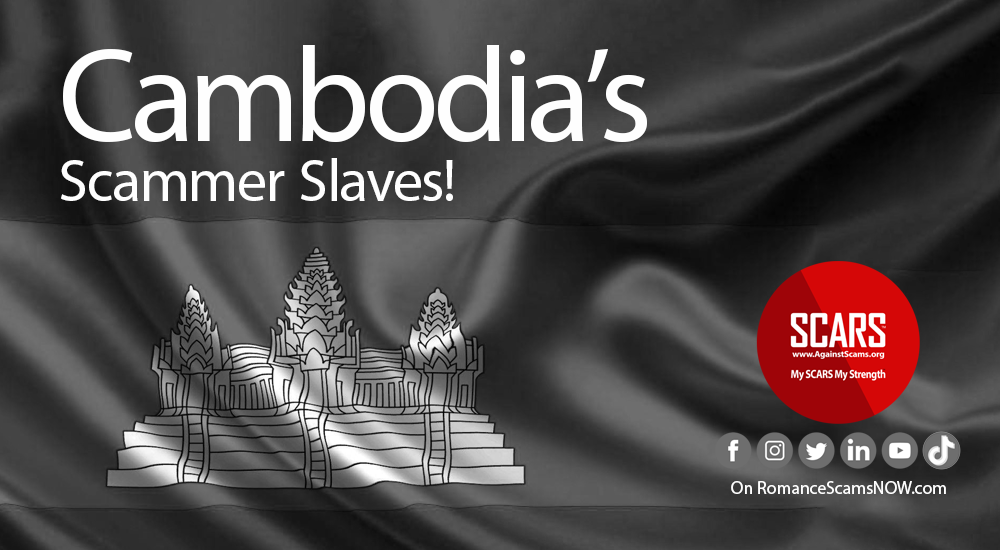
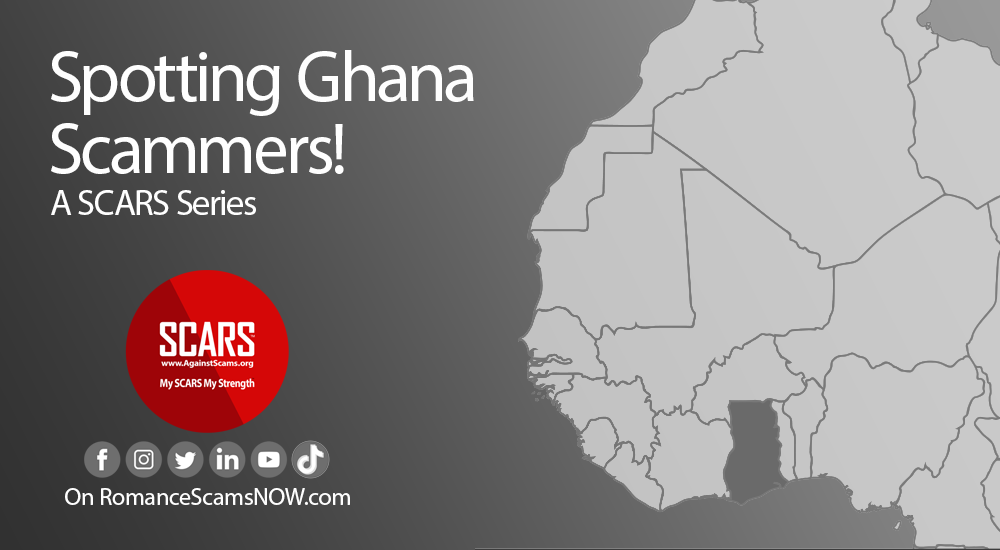
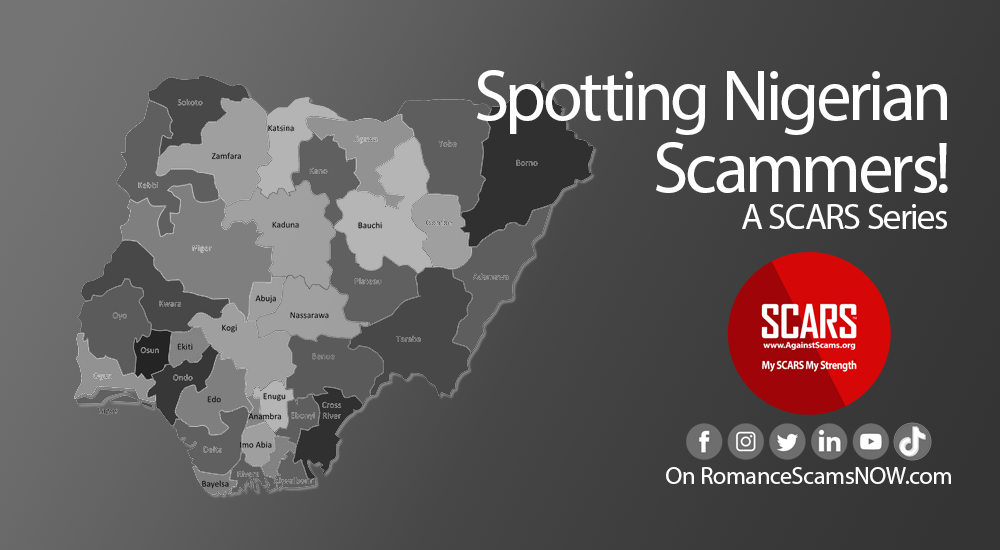




Thank you for your comment. You may receive an email to follow up. We never share your data with marketers.